 Petzlover
Petzlover Perro Cimarron is originated from Uruguay but Red Heeler is originated from Australia. Perro Cimarron may grow 10 cm / 4 inches higher than Red Heeler. Perro Cimarron may weigh 29 kg / 64 pounds more than Red Heeler. Both Perro Cimarron and Red Heeler has almost same life span. Both Perro Cimarron and Red Heeler has almost same litter size. Both Perro Cimarron and Red Heeler requires Low Maintenance.
Perro Cimarron is originated from Uruguay but Red Heeler is originated from Australia. Perro Cimarron may grow 10 cm / 4 inches higher than Red Heeler. Perro Cimarron may weigh 29 kg / 64 pounds more than Red Heeler. Both Perro Cimarron and Red Heeler has almost same life span. Both Perro Cimarron and Red Heeler has almost same litter size. Both Perro Cimarron and Red Heeler requires Low Maintenance.
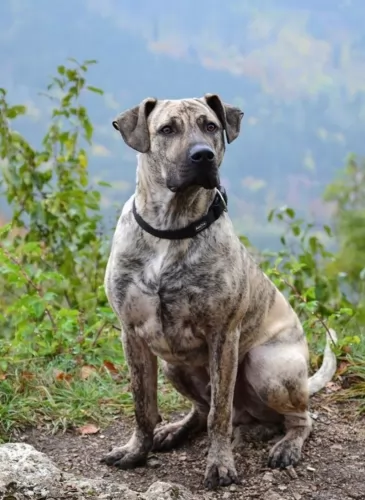 The Perro Cimarron, also known as the Uruguayan Cimarron is a molosser type dog which originated in Uruguay. The dog is believed to have descending from European dogs which were brought to the country by early colonizers.
The Perro Cimarron, also known as the Uruguayan Cimarron is a molosser type dog which originated in Uruguay. The dog is believed to have descending from European dogs which were brought to the country by early colonizers.
These dogs are the official mascot of the National Army of Uruguay. The dog is also recognized in Uruguay as well as by the Federation Cynologique Internationale. The dog was exported to the United States and then recognized by the United Kennel Club in the category Guardian Dog.
 Known also as the Australian Cattle Dog, the Red Heeler is also known as the Blue Heeler. This is a breed of herding dog originally developed in Australia.
Known also as the Australian Cattle Dog, the Red Heeler is also known as the Blue Heeler. This is a breed of herding dog originally developed in Australia.
These dogs are known for their stamina and resilience with driving cattle over long distances in hot weather and across rough terrain.
It was George Eliott who developed the Red Heeler – crossing native Dingoes with Collies and other herding dogs.
In America, the breed was fully recognised in September 1980.
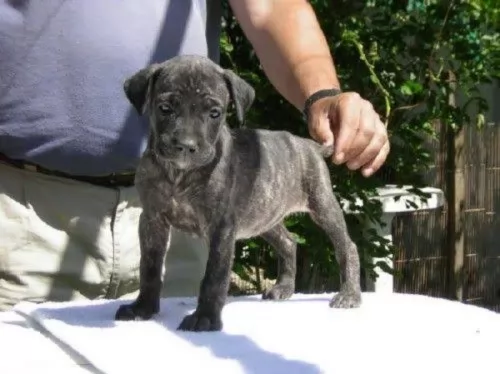 The Perro Cimarron is a large dog standing at between 58 to 61cm and weighing 38 to 45kg, both males and females.
The Perro Cimarron is a large dog standing at between 58 to 61cm and weighing 38 to 45kg, both males and females.
He is a muscular dog with the coat being short and smooth and in a pale fawnish color or brindle and with a black face.
The Uruguayan Cimarron is a multi-purpose working dog but today he is mainly a family companion. This large mastiff type dog is muscular and athletic. He has a large head, the ears are high set and floppy but sometimes they are still cropped and made erect. The tail is thick, low set and reaches to the hock. He has a black nose, brown eyes and a black mask.
Strong, alert, self confident and brave, the Perro Cimarron may not have a particularly friendly face but he loves his human family and is loyal to them. He is calm and cool but even so, he will need to be trained and socialized and then he becomes calm around different people and in different situations. He is a dog that can get on well with children and pets in the home.
 The Red Heeler is a medium-sized dog standing at between 43 to 51 cm in height and weighing in the region of 14 – 16 kg.
The Red Heeler is a medium-sized dog standing at between 43 to 51 cm in height and weighing in the region of 14 – 16 kg.
He is muscular, with a sturdy build. The coat of this robust dog is shortish and thick and quite often you’ll find a white star marking on he forehead. The coat is a blue-grey color or reddish. The tail of this dog is long and the ears are erect.
The Red Heeler has always been a working dog so he is energetic and lively, being independent and strong-willed.
He is super intelligent too and can be easily trained and socialized. He is a dog that simply loves the outdoors and if you don’t live on a farm, he is going to need lots of exercise.
He gets on well with kids and other pets, but children should be taught to respect him and be kind towards him, otherwise he might not tolerate them. He is a loyal, protective dog, wanting to ensure the safety of his human family.
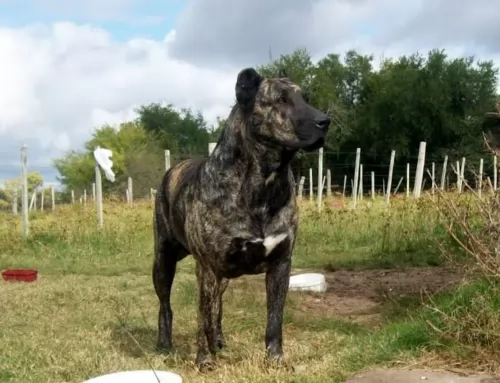 The Uruguayan Cimarron is not looked upon as a pet for the first time dog owner. He is strong willed, stubborn, somewhat aggressive and independent and will require a strong, firm, consistent owner.
The Uruguayan Cimarron is not looked upon as a pet for the first time dog owner. He is strong willed, stubborn, somewhat aggressive and independent and will require a strong, firm, consistent owner.
He will make a loyal, affectionate pet for the person who takes time to socialize and train him. He also makes a good watchdog.
The way any dog breed is brought up will determine how he turns out, and if this particular dog is brought up the right way and given the right amount of care and exercise he needs, he can make as good a pet as any other dog breed.
 When you bring a Red Heeler into your home, you must know that you’re never going to have a dull moment. They’re not content to lie around with nothing to do. These popular dogs literally coax you to come out and to be active.
When you bring a Red Heeler into your home, you must know that you’re never going to have a dull moment. They’re not content to lie around with nothing to do. These popular dogs literally coax you to come out and to be active.
Red Heelers need lots of activities and lots of room, so they aren’t particularly suited to life in the city. Large properties and plenty to do is what they ask for.
Your Red Heeler is going to make a splendid pet, loyal and devoted, the perfect example of man’s best friend.
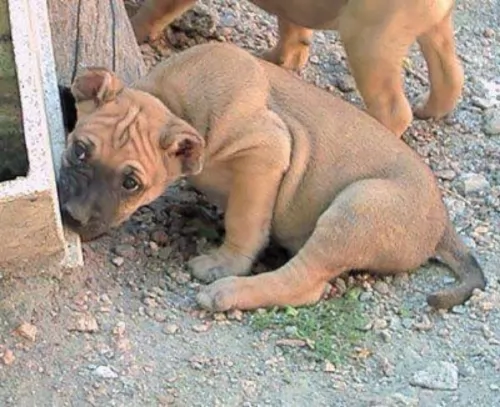 Most dogs, when they are well cared for, don’t get sick often. The Cimarrón is a robust kind of dog but even so he can get any one of the many common dog illnesses there are such as hip dysplasia, bloat, dental disease, cancer, obesity and others.
Most dogs, when they are well cared for, don’t get sick often. The Cimarrón is a robust kind of dog but even so he can get any one of the many common dog illnesses there are such as hip dysplasia, bloat, dental disease, cancer, obesity and others.
This infection can make your dog restless and you will notice your dog trying to wee often but unable to. It can be terrible watching your dog battling, and you will need to get your pet to the vet soon.
Your dog can pick up parasites anywhere such as ticks ad fleas. There are also internal parasites such as tape- and heartworms. They can bring your pet down, making him lethargic and nauseous, so it is best to research canine parasites so you can know what steps to take to protect your dog.
Don’t for one minute think that skin problems are a minor ailment. The pain and itching can drive your dog to despair. The skin can be red, inflamed and oozing. There are so many things that can cause your pet to get a skin allergy and you will need to get him to the vet to get some kind of relief for him.
 Your Red Heeler can live to be 15 years of age with good care. Every dog however, can fall prey to some of the many common dog diseases there are, some of which can be -
Your Red Heeler can live to be 15 years of age with good care. Every dog however, can fall prey to some of the many common dog diseases there are, some of which can be -
There are quite a lot of congenital and inherited musculoskeletal disorders in dogs, with some of the more common ones being hip dysplasia and muscular dystrophy for instance.
There are some of these musculosceletal problems which can be fatal. Some of the typical symptoms you’ll see with these problems are difficulty climbing stairs or jumping, loss of muscle mass in the hind limbs, arthritis and lameness.
The retina of the eye is that light-sensitive part and which is part of the central nervous system. With retinal degeneration, the cells decline, leading to impaired vision and sometimes even blindness.
Some symptoms to look out for include dilated pupils, night blindness and the inability to see clearly in bright light. The disease worsens over times with sudden blindness being quite common with older dogs. Your vet will want a thorough history of your dog’s health.
Other dog diseases to be very aware of are cancer, obesity, bloat, hip dysplasia and epilepsy.
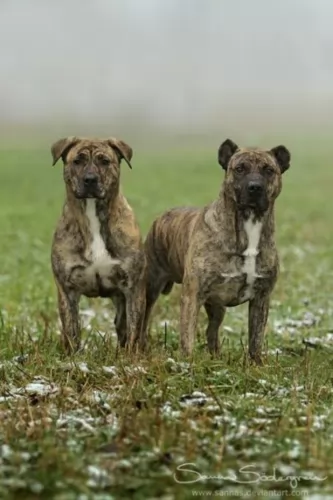 As a high energy, intelligent dog, the Cimarron Uruguayo needs plenty of exercise. He won’t be content to sit around and will be frustrated and even destructive if he doesn’t receive lots of attention and exercise. Daily walks will be imperative as well as other forms of physical and mental stimulation.
As a high energy, intelligent dog, the Cimarron Uruguayo needs plenty of exercise. He won’t be content to sit around and will be frustrated and even destructive if he doesn’t receive lots of attention and exercise. Daily walks will be imperative as well as other forms of physical and mental stimulation.
Your Uruguayan Cimarron is a low maintenance dog because of the short coat which will still require brushing twice a week as he does shed quite a bit. Other forms of grooming include nail clipping, checking the ears and teeth as both of these can become seriously infected if not checked and attended to.
If you have a Uruguayan Cimarron dog as a pet, you will need to be looking at the best food for him as he is large and energetic. There are some excellent commercially manufactured dog foods on the market and you want to be sure that you read the ingredients list so that the food can benefit your pet.
It’s never a good idea to just go on and on feeding your pet kibble. A break every now and again can do your pet the world of good. Some home-made food such as boiled chicken, brown rice or pasta and some cooked vegetables such as sweet potato, carrots and spinach will delight your dog when added into his kibble occasionally. He loves the tasty simplicity of such a diet and will never have to worry about digestive problems.
For such a dog, some raw meat added in from time to time will also do him good. Make sure he always has access to fresh, cool water.
 The Red Heeler is an active dog, and apart from walks which will give him the chance to sniff around, he will need lots of other forms of exercise. Rope pulling games he’ll love and running after a ball will please him because it takes him back to days when he used to run around and herd livestock.
The Red Heeler is an active dog, and apart from walks which will give him the chance to sniff around, he will need lots of other forms of exercise. Rope pulling games he’ll love and running after a ball will please him because it takes him back to days when he used to run around and herd livestock.
If you’re an outdoorsy type of person who loves hiking in the wilds and swimming in rivers, you can count this dog in.
You can look at the Red Heeler as a low maintenance dog. He does shed, but a good brush of the coat twice a week will be excellent for him. If he doesn’t wear his nails down naturally, you will need to trim them. Also, while you are brushing him, check his ears and eyes and inside his mouth to make sure he is clear of all infections.
Red Heelers rely on good food for their resilience and stamina, and for convenience it is good to have commercially manufactured dog food as a backup. The best is home-made food which is easy to prepare and totally uncomplicated.
Simply add into one big pot chicken, brown rice or pasta and spinach, sweet potatoes and carrots. This food can all be chopped up, refrigerated and added warmed up and in small portions to your pet's dry kibble once or twice a week. Simple and tasty, your Red Heeler will love it and thrive on it too.
Ensure there is always a bowl of fresh, cool water within his reach.